Cooper Stansbury
Bioinformatics Retrieval Augmentation Data (BRAD) Digital Assistant
Sep 04, 2024Abstract:We present a prototype for a Bioinformatics Retrieval Augmentation Data (BRAD) digital assistant. BRAD integrates a suite of tools to handle a wide range of bioinformatics tasks, from code execution to online search. We demonstrate BRAD's capabilities through (1) improved question-and-answering with retrieval augmented generation (RAG), (2) BRAD's ability to run and write complex software pipelines, and (3) BRAD's ability to organize and distribute tasks across individual and teams of agents. We use BRAD for automation of bioinformatics workflows, performing tasks ranging from gene enrichment and searching the archive to automatic code generation and running biomarker identification pipelines. BRAD is a step toward the ultimate goal to develop a digital twin of laboratories driven by self-contained loops for hypothesis generation and testing of digital biology experiments.
RAILS: A Robust Adversarial Immune-inspired Learning System
Jun 27, 2021
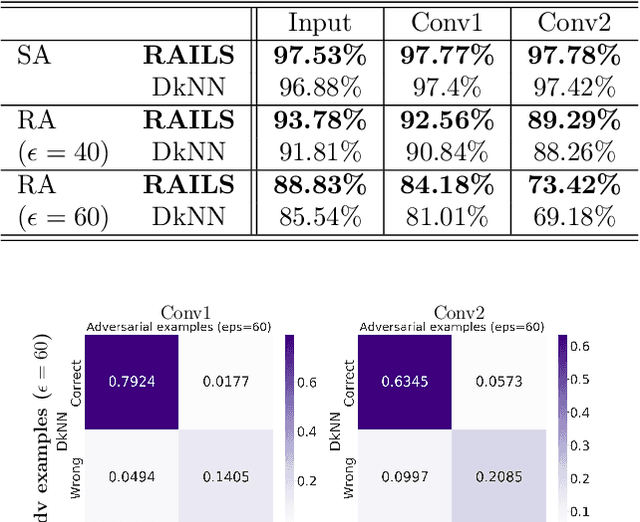
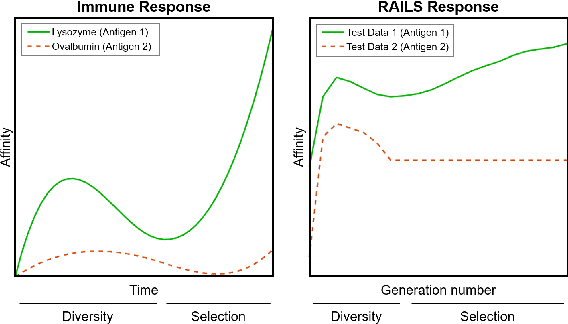
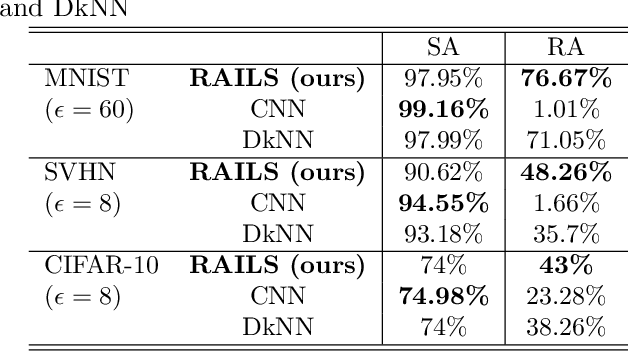
Abstract:Adversarial attacks against deep neural networks (DNNs) are continuously evolving, requiring increasingly powerful defense strategies. We develop a novel adversarial defense framework inspired by the adaptive immune system: the Robust Adversarial Immune-inspired Learning System (RAILS). Initializing a population of exemplars that is balanced across classes, RAILS starts from a uniform label distribution that encourages diversity and debiases a potentially corrupted initial condition. RAILS implements an evolutionary optimization process to adjust the label distribution and achieve specificity towards ground truth. RAILS displays a tradeoff between robustness (diversity) and accuracy (specificity), providing a new immune-inspired perspective on adversarial learning. We empirically validate the benefits of RAILS through several adversarial image classification experiments on MNIST, SVHN, and CIFAR-10 datasets. For the PGD attack, RAILS is found to improve the robustness over existing methods by >= 5.62%, 12.5% and 10.32%, respectively, without appreciable loss of standard accuracy.
Immuno-mimetic Deep Neural Networks (Immuno-Net)
Jun 27, 2021
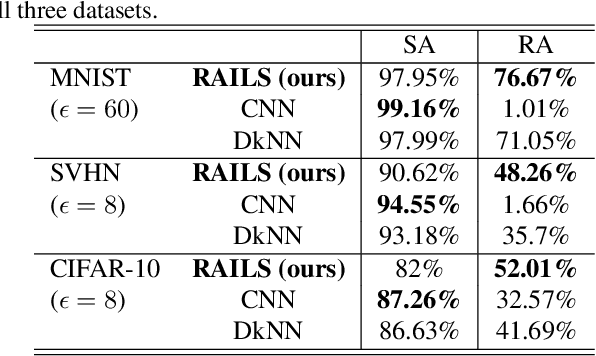
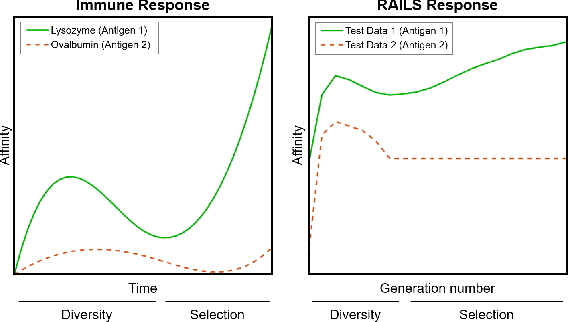
Abstract:Biomimetics has played a key role in the evolution of artificial neural networks. Thus far, in silico metaphors have been dominated by concepts from neuroscience and cognitive psychology. In this paper we introduce a different type of biomimetic model, one that borrows concepts from the immune system, for designing robust deep neural networks. This immuno-mimetic model leads to a new computational biology framework for robustification of deep neural networks against adversarial attacks. Within this Immuno-Net framework we define a robust adaptive immune-inspired learning system (Immuno-Net RAILS) that emulates, in silico, the adaptive biological mechanisms of B-cells that are used to defend a mammalian host against pathogenic attacks. When applied to image classification tasks on benchmark datasets, we demonstrate that Immuno-net RAILS results in improvement of as much as 12.5% in adversarial accuracy of a baseline method, the DkNN-robustified CNN, without appreciable loss of accuracy on clean data.
 Add to Chrome
Add to Chrome Add to Firefox
Add to Firefox Add to Edge
Add to Edge